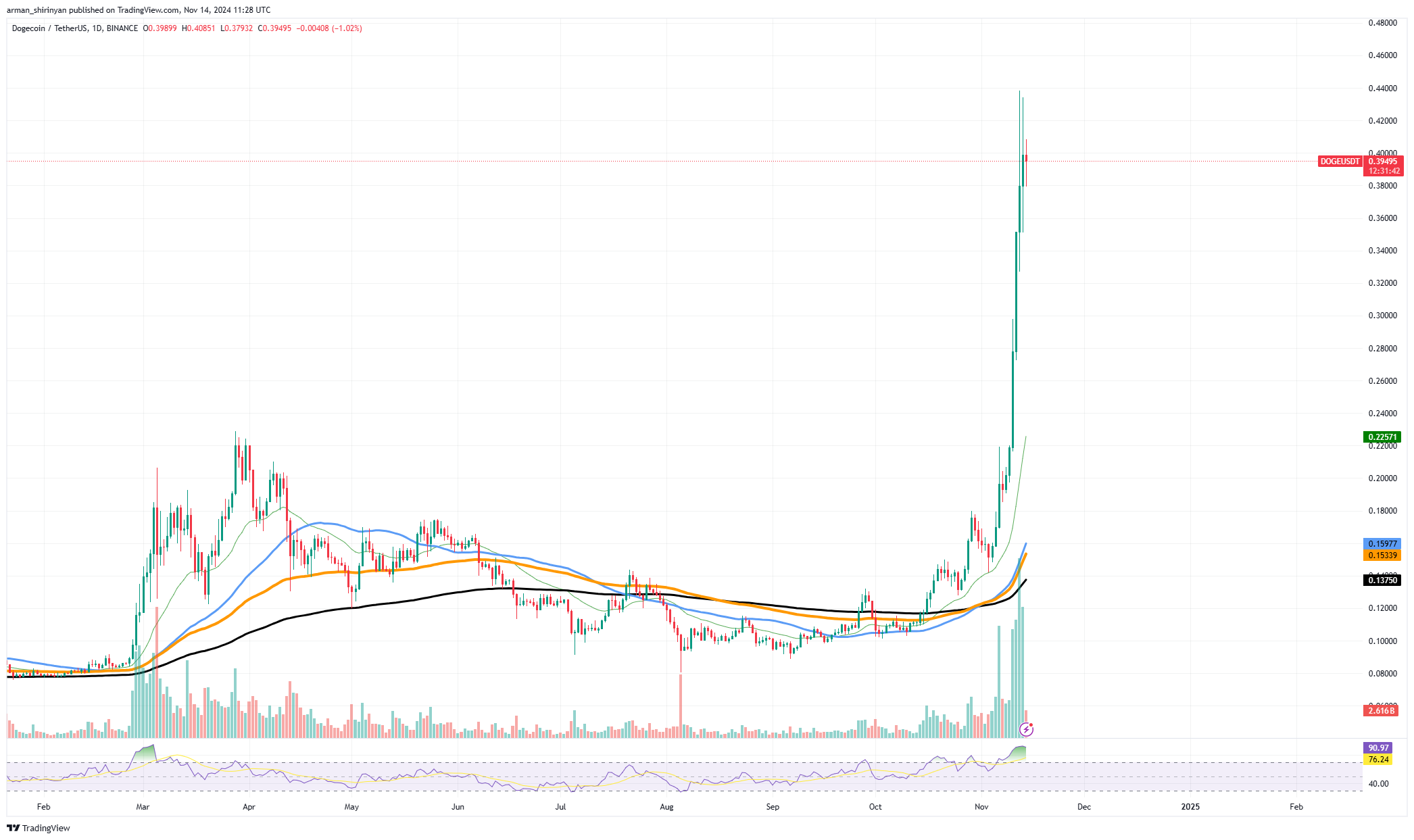In a single day, Dogecoin recorded an incredible 61 billion DOGE in large transactions, shattering a one-year record for whale movements. Concerns about what might be going on behind the scenes have been raised by this abrupt increase in whale-related activity.
Large transactions indicate that whales, or major holders, are actively involved in the market, which may indicate a significant redistribution or accumulation of assets. Due to the size of their transactions, whales have the ability to greatly affect the price of Dogecoin, so high levels of whale activity are frequently a sign of impending price volatility.

In line with an intense rally that has driven DOGE prices to yearly highs, an examination of the on-chain data shows that Dogecoin's transaction volume is still high, with over 60 billion DOGE moved in the last 24 hours. The vast majority of Dogecoin holders are profiting, as evidenced by the fact that 96.18% of addresses are currently in the money, according to IntoTheBlock's analysis.
This positive on-chain indicator lends credence to the idea of robust market sentiment and the potential for further upward movement. In the meantime, Dogecoin's price has skyrocketed in recent weeks, approaching $0.40. Due to Dogecoin's renewed popularity, retail investors have also returned to the market as a result of the price increase. Investors should keep an eye on the resistance zone around $0.40 and the next significant level at $0.50, even though this may appear to be a recipe for sustained bullish momentum. If these levels are broken, DOGE may be able to reach even higher price points.
It is necessary to exercise caution, though. Whales may try to profit from extremes in whale activity, which frequently results in either a price rally or a steep sell-off. Dogecoin may experience a correction if the majority of recent whale transactions involve sales rather than accumulation.
 u.today
u.today